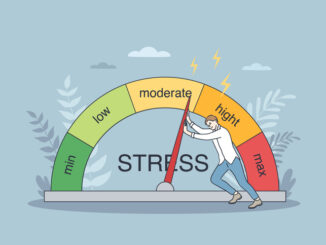
What are the signs that you could be a people-pleaser, and how does it affect your wellbeing? Andy Gill explores
CREDIT: This is an edited version of an article that originally appeared on Happiful
As a recovering people-pleaser, I am very aware of the personal cost of this habit. Many of us ‘people-please’ in some form or other, and it remains something that I have to work hard not to slip into.
In interactions with other people, we want them to be happy with us; we want to feel accepted by them, and viewed positively. People-pleasing is one way to do this and, while it can be effective, it’s not a mature or healthy approach to human relations.
We can define a ‘people-pleaser’ as a person who has a compulsive emotional need to make sure others are happy. There is nothing wrong with wanting people to be happy, but a people-pleaser will make this more important than anything else in order to be approved of, accepted, liked or loved. This comes at the expense of meeting their own needs, desires or preferences. They will say ‘Yes’ to a request, even when they want to say ‘No’, because the latter would risk critical judgement, rejection or even abandonment; for a people-pleaser, this is a terrifying prospect, a threat to their very survival.
People-pleasing comes from a younger part of us. It is a strategy we adopt as young children when we feel vulnerable and powerless around authority figures. When we feel threatened, people-pleasing keeps us safe. It is compliant and submissive in nature; we do what we can to be seen as good and worthy. The problem comes when we continue to people-please into adulthood when it hinders our emotional development.
In my own experience people-pleasing affected my ability to form and maintain healthy personal and work relationships. When you build relationships on a foundation of pleasing others, you end up in relationships that are unsatisfying and which fail to meet your needs. There are also many people who will use people-pleasers for their own gratification, as people-pleasers have poor or non-existent boundaries; in shifting themselves to meet the needs of others, they can get bent out of shape or trampled.
Who are you?
However, while learning to set and maintain healthy boundaries is an important part of recovering from people-pleasing, the key step is to understand who you are, and what you stand for.
After spending so much time focusing on others – and, perhaps, even adopting their beliefs – you may have lost sight of what is important to you. You can find this again by identifying your values – the core beliefs that represent what you stand for. Take time to identify your values; if you search online and you will find a range of tools and exercises to help you with this.
Once you have your core values, you will have a framework to guide your behaviours and actions in any situation, and the information will come in the form of feelings, as well as thoughts. This is important bevause people-pleasers have learned not to listen to, or value, their feelings – yet feelings are an invaluable early warning system for the self, so that when someone requests something of you that feels wrong, or uncomfortable, it is an indication that the self is being compromised.
My clients often feel that they need to justify themselves with logic and reason; I tell them that a feeling is reason enough to either ask for time or say ‘No’. Your feelings will tell you when something is ‘right’ for you – and when you can respect, and act on, your feelings you will naturally set and maintain healthy boundaries. When you can maintain healthy boundaries, you will know when to say ‘No’.
Are you a people-pleaser?
Ask yourself these questions. If you answer ‘Yes’ to any or all of the below, you may have some people-pleasing tendencies:
- Do you say ‘Yes’ to requests from others, even when you want to say ‘No’?
- Do you feel unworthy, or that you lack value?
- Do you feel unsure about your boundaries, or that they’re not always healthy?
- Do you struggle to stand up for yourself?
- Do you adopt the values and beliefs of others to fit in and be accepted?
- Do you struggle to meet your emotional and physical needs? Do you feel exhausted all the time?



Be the first to comment